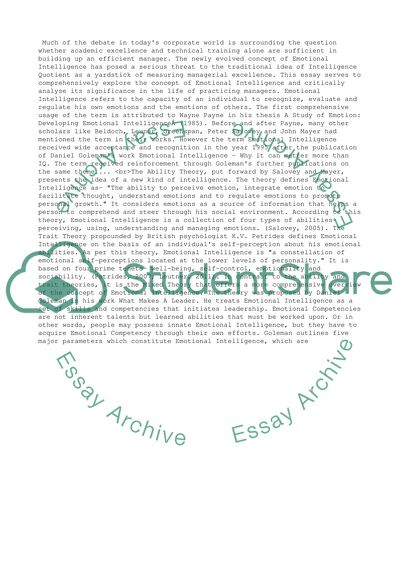Cite this document
(“Why is an understanding of Emotional Intelligence essential for Essay”, n.d.)
Retrieved from https://studentshare.org/management/1493852-why-is-an-understanding-of-emotional-intelligence
Retrieved from https://studentshare.org/management/1493852-why-is-an-understanding-of-emotional-intelligence
(Why Is an Understanding of Emotional Intelligence Essential for Essay)
https://studentshare.org/management/1493852-why-is-an-understanding-of-emotional-intelligence.
https://studentshare.org/management/1493852-why-is-an-understanding-of-emotional-intelligence.
“Why Is an Understanding of Emotional Intelligence Essential for Essay”, n.d. https://studentshare.org/management/1493852-why-is-an-understanding-of-emotional-intelligence.


